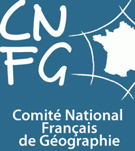Anne Buttimer (1937–2017)
Geography has lost one of its true stars with the passing of Anne Buttimer on 15 July. Anne devoted much of her life to the discipline of Geography and was a staunch supporter of its goals and values.
Her passion for the subject transmitted to all who had the good fortune to meet her. She was generous with her time, praise and compassion. She was devoted to her country and its international promotion and reputation.
Anne was a graduate of University College Cork, and after gaining her Master’s degree in 1959, she became a Dominican nun in Seattle. She remained in the order for 17 years. She received her PhD in Geography at the University of Washington (Seattle) in 1965. During her distinguished career she held research and teaching positions in Belgium, Canada, France, Scotland, Sweden, and the USA.
She was appointed Professor of Geography at University College Dublin (UCD) in 1991, a post she held until her not-very-retired ‘retirement’ in 2003. After that, Anne continued to work relentlessly, attending overseas meetings, giving invited lectures and engaging in debates on the promotion of social science, European cooperation and the world of geographical knowledge production and its circulation.
Anne possessed a steely determination that would see her rise to become President of the International Geographical Union (2000–4) and the first geographer to be elected Vice-President of Academia Europaea in 2012. She was a powerful advocate of the discipline. She was truly international in her work, vision and activities; a gifted multilingual scholar with a sharp intellect. Her scholarship on place, space and the spirituality of everyday human existence was truly ground breaking. One paper that had exceptional impact was “Grasping the dynamism of lifeworld”, which appeared in the Annals of the Association of American Geographers in 1976, and has been cited well
over 700 times. It drew upon the social phenomenology that was then widely influential in the other social sciences, and applied it to the culturally defined spatiotemporal setting or horizon of everyday life. In her work she promoted the emancipatory role of humanism, and championed calls for
Western scholars to seek better communication with colleagues from other cultures to address
global environmental challenges. Anne’s work received deservedly numerous international awards and honours. Most recently these included: the Wahlberg Medal of the Swedish Society for Anthropology and Geography in 2009; the Lifetime Achievement honour from the Association of
American Geographers, presented to her at the Annual Conference of the AAG in Tampa in 2014; and the Vautrin Lud prize (often referred to as the ‘Nobel Prize’ in Geography) in 2014.
Anne was deeply committed to her family, friends and colleagues and she will be greatly missed by
us all.
Alun Jones
Stephen Mennell
